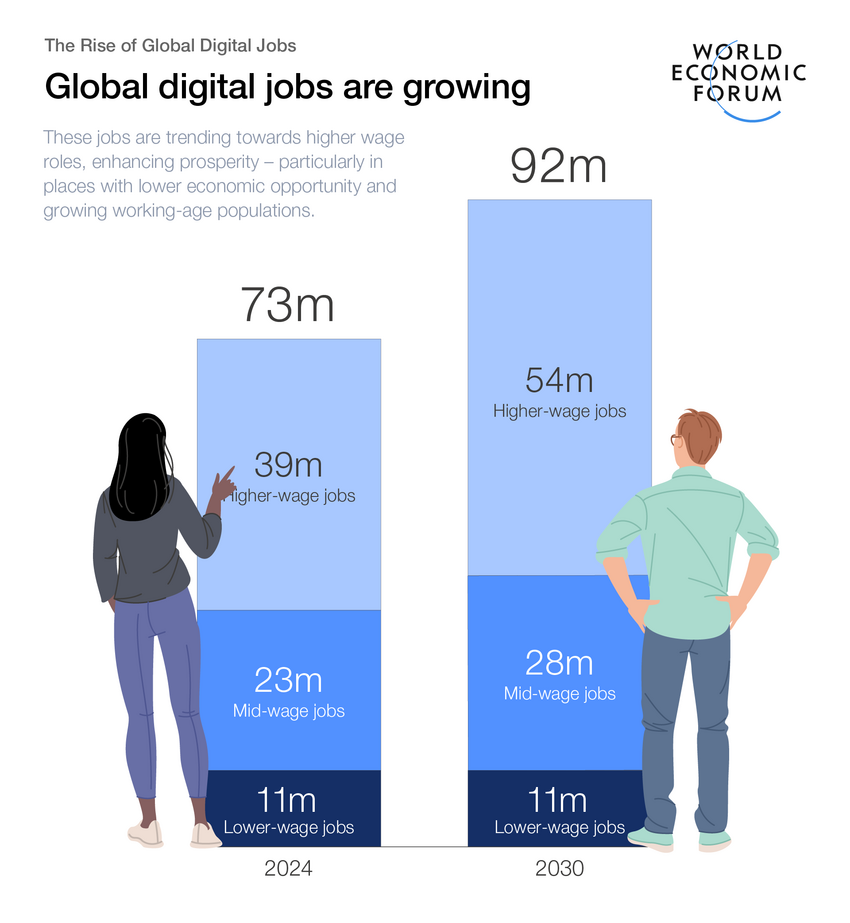‘International employers want to enrich conventional approaches to workforce administration with new instruments’

International digital jobs are anticipated to surge to round 92 million by 2030, in accordance with the World Financial Discussion board in a brand new white paper.
The paper, produced in collaboration with tech agency Capgemini, regarded into digital jobs that may be carried out remotely from anyplace.
It mentioned the variety of such international digital jobs will rise to 73 million this 2024. By 2030, these jobs will probably be balloon by roughly 25% to round 92 million.
“These jobs are skewed extra in the direction of higher-paying roles as a consequence of development in higher-wage international digital jobs, decline in lower-wage international digital jobs, and the brand new international digital jobs being completely high- and middle-income roles,” the paper learn.

Greatest jobs for digital
The paper mentioned 218 job varieties out of 5,400 are conducive to turning into digital jobs.
These jobs symbolize a complete of 73 million employees out of the 820 million complete international employees who’re represented by the Worldwide Labour Organisation’s occupational employment statistics.
Amongst these job varieties, 40% are in accounting, in addition to authorized and finance roles, in accordance with the paper. Customer support representatives, advertising, promoting and communication professionals, in addition to IT professionals every make up round 10% of complete jobs.
Affect of world digital jobs
The WEF mentioned international digital jobs current employers with the chance to utilise expertise around the globe, widening their expertise swimming pools and offering international locations with financial development pathways.
This can require, nevertheless, broad entry to digital infrastructure, instructional and vocational coaching programmes, and competitors on abilities and expertise relatively than decrease wages, in accordance with the report.
“International employers, in the meantime, want to enrich conventional approaches to workforce administration with new instruments, proactively increasing recruitment swimming pools and making a tradition that embraces hybrid working fashions for all employees,” the report learn.
Sustain with the most recent information and occasions
Be part of our mailing checklist, it’s free!
